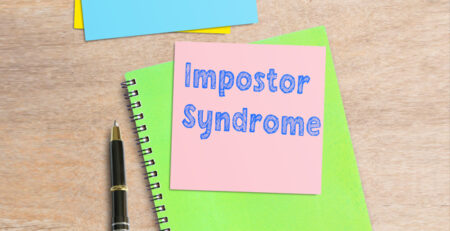How Psychotherapy can help with Bipolar Disorder?
Bipolar disorder is a mental condition associated with varied and unusually elevated episodes of mood swings that need immediate professional help. People with bipolar disorder often suffer from emotional highs and lows such as euphoria, extreme excitement, unusual irritability, and racing thoughts. These mood swings can affect their daily routine, sleep patterns, judgment, behavior, and ability to act clearly. If left untreated it can become a lifelong condition. Behavioral psychotherapy can help treat bipolar disorder with better results and has got no side effects on health.
People with Bipolar disorder often encounter delusions and hallucinations along with these abnormal mood changes. This disorder can negatively affect families, relationships, studies, jobs, and the person’s ability to have a normal and happy life.
There is a growing concern in the public about the increased rate of bipolar disease cases among US children, Adolescents, and Adults. Studies say that 5.7 million adults, in the U.S. alone, it is observed that 1 out of 45 adults may strongly exhibit the symptoms of bipolar disorder. The behavior of a person with bipolar disorder is something that friends, co-workers, and family members may find difficult to identify or recognize at early stages, and behavioral psychotherapy can diagnose a person with such a mental condition.
How Is Bipolar Disorder Diagnosed?
Like any mental condition, diagnosis is done by conducting a series of tests, physical exams, and perhaps even laboratory exams. Mental Health Professionals like Psychiatrists or trained and licensed therapists can determine if a person indeed has this disorder and what treatment plan is required.
But after the tests, a thorough interview is required for the doctor to get the patient’s family profile and complete historical symptoms relating to family members. This may involve talking to a parent, sibling, or spouse and can even extend to previous input from family and friends to completely determine the patient’s medical profile.
People with abnormal depressive swings are usually those who are seeking medical help, and the medical professional must be able to distinguish this from unipolar depression, which affects those who don’t experience manic swings but are just depressed.
What Are Usually The Symptoms Of Bipolar Disorder?
Here is a list of some typical symptoms of Bi-polar disorder
- Severe mood changes with long periods of happiness or sadness
- Abnormally irritable or annoying moods which are beyond the normal range
- Exhibiting over impulsive behavior as in shopping sprees, sex, and business decisions
- lack of sleep and extreme restlessness
- Increased and constant grandiose thinking, delusions, or the excessive and frequent tendency to live in an imaginary world.
- Inability to make rational decisions, facing difficulty with studies or work, and daily living that is not otherwise caused due to substance or alcohol abuse;
- Suicidal thoughts and attempts
- Extreme energy while feeling lost or worthlessness
- Experiencing strange sensations such as seeing, hearing, or smelling things that are not around
How Is It Treated?
Bipolar disorderis a lifelong condition and requires a long-term treatment plan that combines both psychotherapy and medication. Psychotherapy plays a key role in bipolar disorder treatment and can be provided in one-to-one or family or group settings. Here are several types of therapy that are proven effective against bipolar disorder.
• Cognitive Behavioural Therapy (CBT)
With this approach, your therapist helps you identify unhealthy, negative beliefs and behaviors and swap them with healthy and positive ones. With cognitive behavior therapy, you can also identify what triggers your bipolar episodes. Your therapist will assist you with effective strategies to manage stress and to cope with upsetting situations.
• Interpersonal And Social Rhythm Therapy (IPSRT)
This is a very specialized approach that focuses on the stabilization of daily rhythms, such as mealtime, sleeping, and waking. Your therapist guides you through a consistent routine that allows for better mood management. Many studies have proven that IPSRT can help people with bipolar disorder establish a daily routine for sleep, diet, and exercise that can eventually benefit them in long term and treating the condition.
• Family-Focused Therapy
When a person is diagnosed with bipolar disorder, it is crucial to learn about this mental health condition and the way it affects you and your family. This can be achieved by taking
Psychoeducation therapy as you can better understand the bipolar illness and develop the coping skills that are much needed to avoid potentially harmful mood swings. You get a chance to learn, identify and understand the signs and symptoms of bipolar disorder and when you recognize them in the initial stage, it can help prevent an impending mood shift and make the course of the disease milder over time.
Although bipolar is a long-term condition, it can be well managed when your ongoing medical treatment is supported with psychotherapy to achieve positive results in long run and improve the condition. Psychotherapy Partners in Minneapolis is a noted therapy center with the most experienced team of certified and licensed therapists and psychologists specialized in providing couples therapy, individual therapy, counseling for depression, anxiety, and various other mental health problems. You can either consult in person or avail yourself of online therapy to get the best solutions for any mental health conditions for you or your loved ones.











Leave a Reply